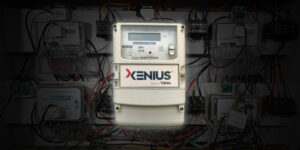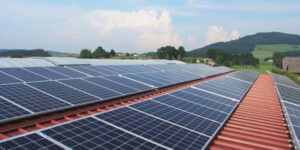As we bid farewell to 2023, it is evident that the year has been a transformative period for India’s smart metering system. After facing sluggish growth and tepid responses from various states in the past, the smart meter infrastructure is now poised for a significant boost. The ambitious target set by the government to install 250 million smart meters across the country by 2025 has not only invigorated the industry but has also garnered heightened interest from major meter manufacturers and key players in the energy sector.
Current scenario, achievements
In the fiscal year 2023-24, an impressive Rs 1.4 trillion has been allocated as an incentive, reinforcing India’s commitment to overhaul its power infrastructure and practices. As of June 30, the National Smart Grid Mission reported the sanctioning of a total of 230 million smart consumer meters across India. Of these, orders for 3.65 crore meters have been awarded, and around 70 lakh smart meters have already been installed, as reported by media sources.
The deployment of smart meters in India has ushered in a new era of efficiency in electricity distribution and billing. Notably, smart meters can automatically detect and report power outages, enhancing the responsiveness of electricity service providers in addressing issues promptly.
Advancements, innovations
The year 2023 has witnessed significant strides in the smart metering system, paving the way for even greater ambition in 2024. The incorporation of artificial intelligence (AI) in smart meters is on the horizon, promising enhanced intelligence and efficiency. With AI integration, smart meters could learn users’ energy consumption habits, allowing for automatic adjustments and, consequently, reductions in energy bills.
Government initiatives & funding
India’s commitment to smart metering is reflected in the significant funding allocated to the sector. The Revamped Distribution Sector Scheme (RDSS) has played a crucial role, with an estimated outlay of INR 3037.58 billion over five years to implement prepaid smart meter projects across the country. The Ministry of Power has taken various measures for implementing Advanced Metering Infrastructure (AMI) across India, pushing for the installation of smart meters through schemes such as Deendayal Upadhyay Gram Jyoti Yojana (DDUGY), Integrated Power Development Scheme (IPDS), Smart Meter National Program (SMNP), and the National Smart Grid Mission (NSGM).
State initiatives, success stories
Several states, including Bihar, UP, Haryana, Assam, and Rajasthan, have emerged as frontrunners in smart meter installation. These states have reported noticeable improvements in billing efficiency and revenue collection, setting a benchmark for others to follow.
Market trends and projections
The India Smart Meter market is witnessing substantial growth, valued at USD 223.4 million and projected to reach USD 3,267.8 million by 2031 at a remarkable CAGR of 34.57 percent during the forecast period 2023-2031, according to Astute Analytica. The market dynamics are undergoing a significant shift, aligning with the nation’s goals of meeting energy demands while reducing its carbon footprint.
Integration with renewable energy sources
The paradigm of the smart meters market in India is undergoing a seismic shift, driven by the nation’s imperative to address both escalating energy demands and the pressing need to reduce its carbon footprint. A pivotal trend changing the contour of the Indian smart meters market is the integration of these devices with renewable energy sources, marking a transformative step toward sustainability.
As per a study conducted by the India Smart Grid Forum, a visionary forecast emerges—by 2025, nearly 40 percent of smart meter installations in India will be seamlessly integrated with decentralized renewable energy systems. This heralds a significant departure from conventional energy models, ushering in a new era where smart meters actively contribute to a cleaner and more sustainable energy landscape.
The integrated setups of smart meters with renewable energy sources serve a dual purpose. Firstly, they facilitate efficient energy consumption tracking, providing consumers with real-time insights into their usage patterns. This transparency empowers individuals to make informed decisions about their energy consumption, nurturing a culture of responsible and mindful energy use.
Secondly, the integration enables grid-balancing, a critical function in the management of energy influx from renewable sources. With the capability to harness real-time data, Distribution Companies (Discoms) can adeptly navigate the fluctuations in energy production from renewable sources. This real-time responsiveness ensures grid stability, a pivotal aspect of managing a modern and resilient energy infrastructure.
The Ministry of New and Renewable Energy underscores the economic benefits of smart meter integration. Their estimates suggest that such integration could result in a substantial 20 percent increase in the efficiency of renewable energy systems. This boost in efficiency translates into potential annual savings of Rs 8000 crore by the year 2030, a testament to the financial and environmental advantages offered by the synergy between smart meters and renewable energy.
Efficiency gains & cost savings
The integration of smart meters with renewable energy systems is anticipated to result in a 20 percent increase in efficiency, translating to potential savings of Rs 8000 crore annually by 2030, according to the Ministry of New and Renewable Energy. These advancements not only contribute to the nation’s sustainability goals but also align with the broader global push towards greener and more sustainable energy practices.
Crystal gazing into 2024
As we look ahead to 2024, the future of smart meters in India appears, as industry experts suggest, promising and dynamic. The advancements and innovations witnessed in 2023 are expected to continue, further improving energy efficiency and reducing costs. Increased connectivity, artificial intelligence, predictive maintenance, data analytics, and integration with renewable energy sources will play a crucial role in shaping the future of energy consumption.
The year 2023 has been a watershed moment for India’s smart metering system, marking a departure from sluggish growth to transformative advancements. With ambitious government targets, significant funding, and industry interest, smart meters are set to play a pivotal role in reshaping the nation’s energy landscape. As we embrace the positive outlook for 2024, it is evident that smart meters will continue to be at the forefront of sustainable and efficient energy practices, contributing to India’s journey towards a greener and more digitally connected future.
Data taken:
https://www.astuteanalytica.com/industry-report/india-smart-meter-market
DISCLAIMER
Observations and options expressed in the article (except where specifically validated by market numbers and stats) belong to the contributing writer of the article, and are not necessarily indicative of the company’s position and stance in the matter.












